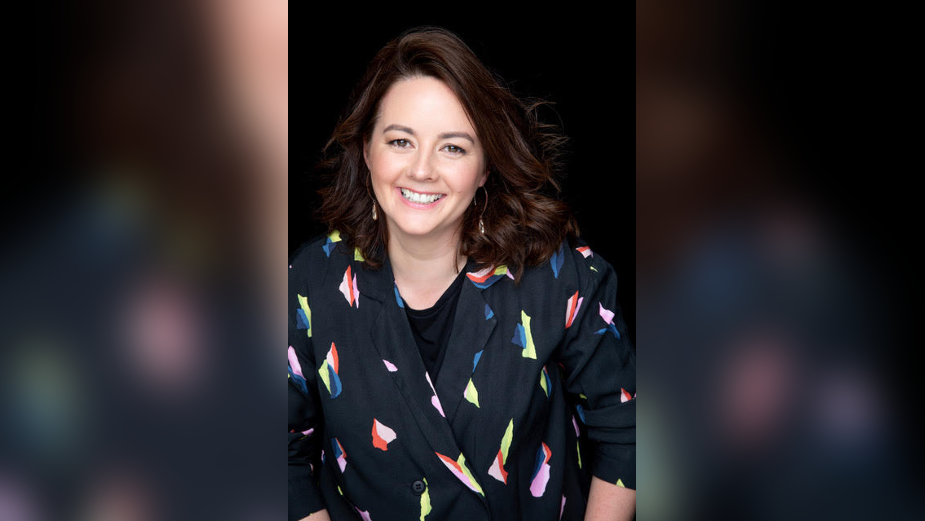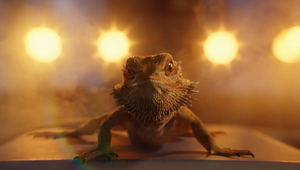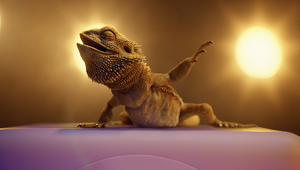
Uprising: Cathy Brady

Cathy Brady’s aware that she’s a bit of an anomaly. Directors usually find themselves working in advertising to hone their craft (and, let’s be honest, to pay the bills), slowly grafting away until they get their break in TV and feature films. Cathy’s filmmaking career has taken a different trajectory, with her working away at shorts, on TV and on her first feature for the past ten years. She’s never dabbled in commercial filmmaking over that time, but having recently signed to the Red Rage roster in Ireland, she’s looking to change that.
She’s excited by the perspective this route will allow her to lend to branded work she’s looking to get involved in because it’s very clear where her strengths lie. To say her filmmaking is character led doesn’t do justice to how intense her obsession with truthful-feeling human drama is. Cathy’s films are relentlessly real, but she’s also always endeavoured to heighten that realism, injecting it with a sense of cinematic magic.
She can trace this sensibility back to her days as a student. A keen painter, she found herself studying visual arts before she considered filmmaking. From there, she got into photography in a big way, and in particular the work of Gregory Crewdson resonated with her. “The people in his pictures were central to everything,” she says, remembering the personal-but-heightened power of works like his Twilight series. Soon Cathy was working with actors on photography projects, chasing the energy that Crewdson’s work emanated. She loved it. And it changed the trajectory of her creativity from there on in.
She was soon making the sort of arty short films that so many students play around with while they play in different creative formats, working as a gang with other students. “That’s when I realised this is what I wanted to do,” she says. It was the collaboration - the melding of various people’s human experience to create something that felt truthful - that exhilarated her. “When it all clicks in, it does feel like magic. I realised, ‘shit, I’m on the wrong degree!’”
Fast forward over a decade and Cathy’s got a feature film, Wildfire, out. Having played at the Toronto International Film Festival last month, its UK premiere takes place virtually at the 2020 BFI London Film Festival this week.
Wildfire centres on two sisters who grew up, like Cathy, on the border between the Republic of Ireland and Northern Ireland. When one of them, who has been missing, finally returns home, the intense bond between the two is reignited. The pair discover their mother’s past but the implications of the secrets they learn have a profound effect on their lives.
The film began over five years ago and it’s taken a lot of hard graft to get it made. Unconventionally, Cathy began with casting, before she had any idea what the film would be. She’d worked with two actors, Nora-Jane Noone and Nika McGuigan, on previous projects. She loved what they each brought to the screen. “There was something about their personality and their energy,” she says. “Just this ability to be both vulnerable and fierce at the same time.” Cathy wondered what would happen if she put them together. So that’s what she did. “I literally sat back and I watched them talking for five hours.”
The pair’s chemistry together didn’t disappoint, so Cathy started writing something with them in mind. She was inspired when she encountered a documentary called Madness in the Fast Lane, telling the story of two sisters who were filmed throwing themselves into traffic on the motorway, in an apparent episode of "shared psychosis", a rare psychiatric disorder in which delusional beliefs are transmitted from one individual to another.
Cathy discussed it with Nora-Jane and Nika, all fascinated by the bizarre story. “What would cause two sisters to be so co-dependent that they would put their own lives at risk? Did they realise that we're putting our lives in danger?” It set the director off on a journey of research into psychosis, gathering stories, images and music that she could bring together.
Past trauma resurfacing was a strong theme that emerged from the research, so Cathy realised that in order to write the story of the characters in the present, she needed to understand what happened in their past. Over a period of months, a script came together, merging fact and fiction. Cathy says it was “built from the ground up with that past in mind.”
The final result is a film that people often assume draws on something personal for Cathy. She has no first-hand experience with psychosis, but what she does draw on personally is the film’s setting. She grew up on the border in Northern Ireland and a large portion of her filmmaking to date has incorporated this. “It’s always been something that’s at the forefront of my mind in terms of identity and landscape,” she says. “How where you’re from can change your sense of identity.” She’s made three films set in the borderlands - her shorts Small Change and Wasted and, now, Wildfire. “I feel like I’ve done the trilogy,” she says. “I feel I’ve answered a certain mindset of what it means to be there.”
That setting carries with it a lot of politics - especially as the entire Brexit rollercoaster ride so far unravelled during the time Wildfire was coming together - but she’s not keen on making explicit political points with her art. “I'm always more interested in the person. I think that really zooming down into the person and the sense of their family environment is what interests me. You hope that when you put that on a microscopic level, somehow it becomes political in the bigger sense, but it's never broad strokes or ‘here’s a film about the Troubles’. Wildfire is a film that deals with the legacy of a place that is in the aftermath of trauma, and a family that's in the aftermath of trauma. And I hope that you don't have to be from Northern Ireland to understand what that feels like. I was really interested in the idea that if you can't deal with the past it’s going to come for you. So it's a film that will hopefully allow a cathartic release by facing the past front on.”
Wildfire has been a long and emotional journey for all involved, dealing with themes of tragedy that become all the more intense when one of the lead actors, Nika McGuigan, died from cancer while the film was in post-production in 2019. “It's incredibly heartbreaking,” says Cathy. “It's just been the most remarkable, beautiful, extreme, everything experience making this feature debut.”
And after all that, because of Covid, nobody involved in the film was able to attend its world premiere at the Toronto International Film Festival last month, where the story of the film’s unusual and dramatic creation was also released online as a short documentary.
Wildfire was finished by February 2020 and Cathy was ready for the next chapter of her life. She shares her plan for the year to travel, “soak up some culture, bring a camera and just let life happen around me.” Pretty much the polar opposite happened. “I had to stand still,” she said.
Initially, she found herself going back to painting - a creative outlet that she’d neglected for 15 years. Locked down in her home, she and her friends spent their time having beers and painting portraits together over Zoom calls.
While she didn’t satisfy the wanderlust she’d wanted to, the reset of coronavirus did allow her to forget about filmmaking long enough that she could think about her next steps. She eventually began researching what will be her second feature idea, which puts the Irish border behind her. She describes it as a “conspiracy thriller set in the Peruvian jungle.”
Cathy’s also focusing her energies on applying her human-led filmmaking sensibilities to advertising scripts. “There's nothing like advertising where you have to be able to condense something down to its bare bones. And I think that is such a skill to have,” she says. “I'm really excited about how to come at that, how to get that sense of feeling or emotion and in just several shots. That, for me, is a really exciting challenge. It's terrifying. It's terrifying. But it's exciting.”













